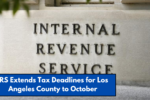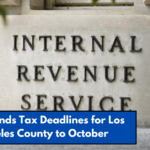Social Security benefits are set to increase in 2025, thanks to the Cost-of-Living Adjustment (COLA). This adjustment, designed to counter inflation, will push payments to record levels, with some beneficiaries receiving over $5,000 per month. But what’s behind this increase, and how can you make the most of it? Here’s everything you need to know.
What is COLA, and Why is it Important?
The Cost-of-Living Adjustment (COLA) ensures Social Security benefits keep up with inflation. Without it, rising costs would reduce the value of these payments, affecting retirees, disabled individuals, and families relying on survivor benefits.
The COLA is calculated using the Consumer Price Index for Urban Wage Earners and Clerical Workers (CPI-W), which tracks changes in the cost of essentials like housing, food, and healthcare. For 2025, the COLA increase is set at 2.5%, reflecting a period of slower inflation compared to the previous two years.
Key Highlights of the 2025 COLA Increase

- Average Monthly Benefit: $1,976 (about $50 more than in 2024).
- High Earners: Retirees who delayed claiming benefits until age 70 could see monthly payments surpass $5,000, a historic milestone.
- Impact on Disability and Survivor Benefits: These payments will also increase proportionally.
Why is the 2025 COLA Smaller Than Previous Years?
In 2023, the COLA was 8.7%, followed by 3.2% in 2024—both driven by high inflation. However, efforts by the Federal Reserve to control inflation have resulted in a more moderate increase for 2025, signaling a return to normal levels.
What Does the COLA Mean for Beneficiaries?
Positive Changes
- Increased Financial Stability: Beneficiaries will have more income to cover essential expenses like rent, utilities, and groceries.
- Long-Term Planning: A steady rise in benefits allows better budgeting for retirees and disabled individuals.
- Maintained Purchasing Power: Despite lower inflation, the COLA ensures recipients can handle ongoing costs for necessities like healthcare and housing.
Challenges to Consider

- Higher Medicare Premiums: The standard Medicare Part B premium is expected to rise to $185, reducing the net increase from the COLA.
- Tax Implications: Depending on your overall income, up to 85% of Social Security benefits may be subject to federal income tax.
How to Make the Most of Your 2025 COLA Increase
- Review Your Budget
Factor in the net increase after Medicare premiums and potential taxes. Adjust your spending to maximize the impact of your benefits. - Delay Retirement Benefits
If you haven’t claimed Social Security yet, consider waiting. Delaying your claim beyond full retirement age boosts your monthly payment by 8% per year until age 70. - Explore Additional Programs
Look into state and federal programs like Medicare Savings Programs or assistance with utilities and property taxes to offset rising costs. - Seek Financial Advice
A certified financial planner can help you optimize your Social Security, Medicare, and overall financial strategy.
Frequently Asked Questions (FAQs)

1. What is the COLA for 2025?
The COLA for 2025 is 2.5%, aimed at aligning Social Security benefits with inflation.
2. Who qualifies for the COLA increase?
All Social Security beneficiaries, including retirees, disabled individuals, and survivors, are eligible.
3. Why are Medicare premiums increasing?
Higher healthcare costs and adjustments in Medicare funding are driving the increase.
4. How can I check my new benefit amount?
Log into your My Social Security account at ssa.gov to see updated benefit statements.
5. Is the COLA increase taxable?
Yes, if your combined income exceeds certain thresholds. Check IRS guidelines for more details.
Additional Resources for Beneficiaries
- Social Security Calculator: Use the SSA’s Retirement Estimator to calculate your benefits.
- Medicare Savings Programs: Help offset rising premiums.
- State and Local Aid: Many states offer financial assistance for seniors, covering utilities, transportation, and property taxes.
Expert Tips for Beneficiaries
- Monitor your benefits by regularly checking your My Social Security account.
- Work with a financial planner to address taxes and long-term planning.
- Leverage local and federal assistance programs to stretch your budget.
Premlata is a seasoned finance writer with a keen eye for unraveling complex global financial systems. From government benefits to energy rebates and recruitment trends, she empowers readers with actionable insights and clarity. When she’s not crafting impactful articles, you can find her sharing her expertise on LinkedIn or connecting via email at biswaspremlata@gmail.com.








